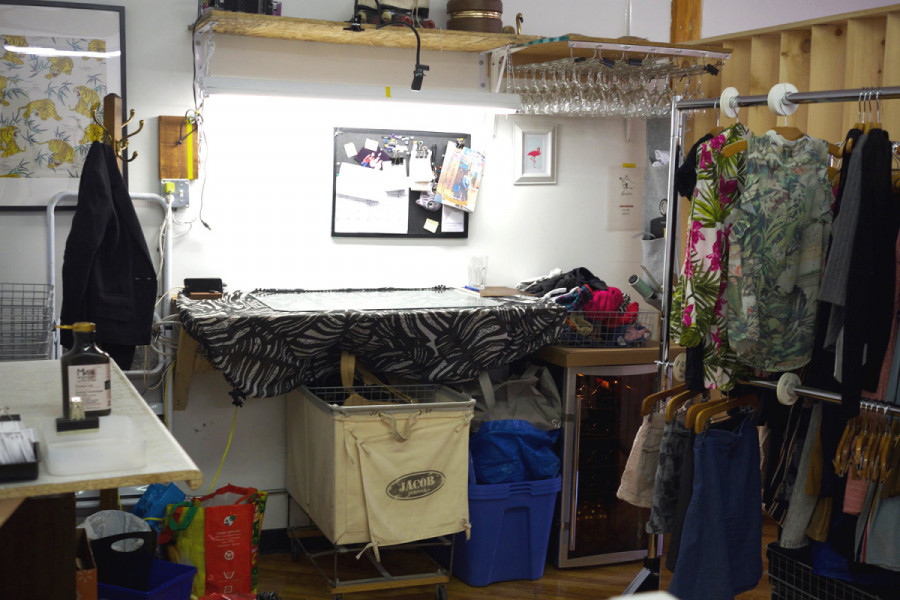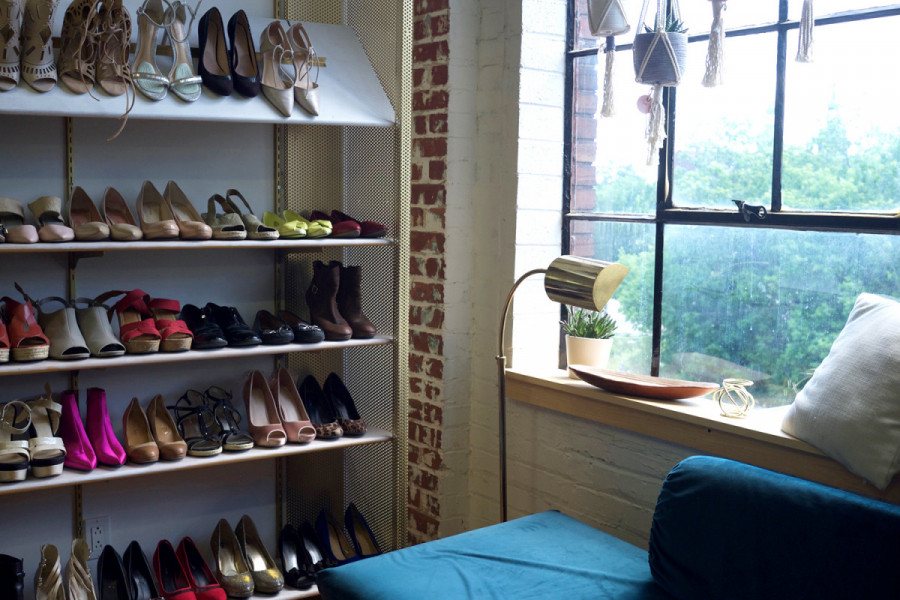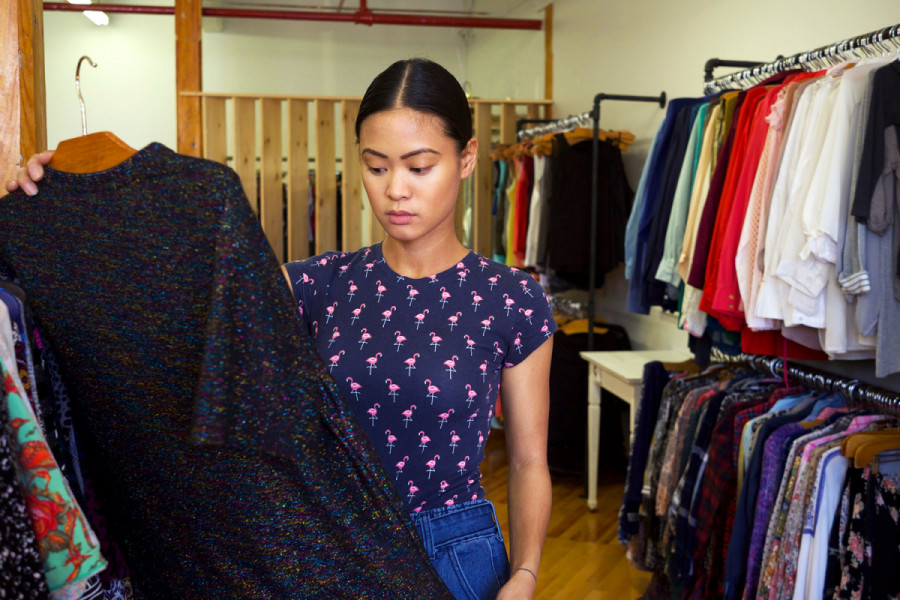Montreal Boutique Shwap Club Offers a Different Approach to Shopping
Community-Building Through Trading Clothes in an Eco-Friendly Fashion
Annette Nguyen hasn’t bought any new clothes in the last 10 years.
Before opening Shwap Club in June 2018, the full-time lawyer and founder of the clothing exchange boutique bought and sold her used clothes online. Buying her clothes in thrift shops was starting to get expensive. Nguyen said prices have gone up as people grew aware of fashion pollution and started looking for alternatives.
Shwap Club was a way for her to create a community of women that held fashion and the environment close at heart.

Katy Houle is one of them. On a Sunday morning, Houle took the metro from Hochelaga to Saint-Henri to go to Shwap Club, which she does at least once a month. Although she could go shopping closer to home, Houle doesn’t mind the distance. There is a financially and ecologically friendlier alternative just beyond the orange line.
Houle rang the buzzer of the brick building on 642 Courcelle St. “Bonjour, c’est Katy.” The door unlocks. They know her by name there—she is part of the rapidly expanding community of 500 Shwap Club members.
At the end of the hall, the doors opened on a little clothing boutique filled with clothes of all colours, and in varying styles and sizes. At the entrance of the room, Houle gave her bag of clothes she wished to exchange to an employee, before heading into the shop area.
There are no price tags here, the club runs on credit currency.
Houle pays an annual membership to have access to the store. It also allows her to accumulate credits, and spend them whenever she likes throughout the year.
Houle took her time to meticulously look at the clothes, a lot of which she hasn’t seen before. Due to the nature of the store, there is a lot of clothing turnover.
“We are bringing back a playful side to shopping.” — Annette Nguyen
As Houle was picking out her new wardrobe, the contents of her bag were being carefully examined. She was going to receive one credit for every clothing article that was deemed appropriate to be placed on a rack in the shop—great condition, still in fashion.
“If we are more and more people to reduce our spending on new clothes by wearing what has already been produced,” said Houle, “we will slow down our worldwide production and in the end this will reduce the ecological footprint of the industry, which is one of the most polluting in the world.”
She really appreciates the financial aspect of this project but above all, it is its ecological mission she relates to most, much like Nguyen.
Nguyen is close to the little collective of people her store gathers. She knows the styles they like most and organizes wine nights on Thursdays so members can get to know each other and introduce friends to the club. “We are bringing back a playful side to shopping,” said Nguyen.

After trying on the clothes she liked, Houle headed back to the front counter to spend her credits. Some of the clothes she brought in weren’t eligible for credit. She left them there to be donated.
Every 10 days, Nguyen brings about 30 garbage bags filled with clothes to Le Chaînon, a Montreal charity that provides accommodation for women in need. The clothes she donates are either articles members tried to exchange that didn’t meet the shop’s standards, clothes with defects or ones that have not found an owner after over a month.
Senior director of operations at Le Chaînon Linda Beauparlant said the clothes donated by individuals and businesses are first looked at by the women taking refuge at the charity, so they can be well-dressed and to their taste. The remaining clothes are sent to Le Chaînon’s shop where they will be sorted.

Clothes from Shwap Club members have multiple lives. They may circulate for a while in between members of the club, then end up in Le Chaînon’s shop.
Houle headed out with a bag filled with new-to-her clothes, satisfied with herself for being part of an eco-friendly collective of women sharing the same views.



